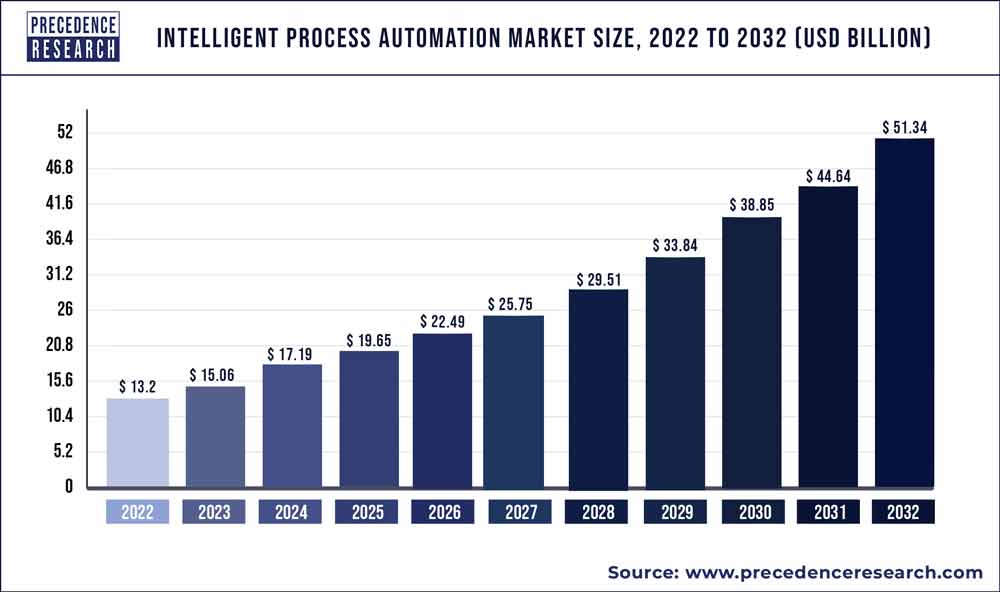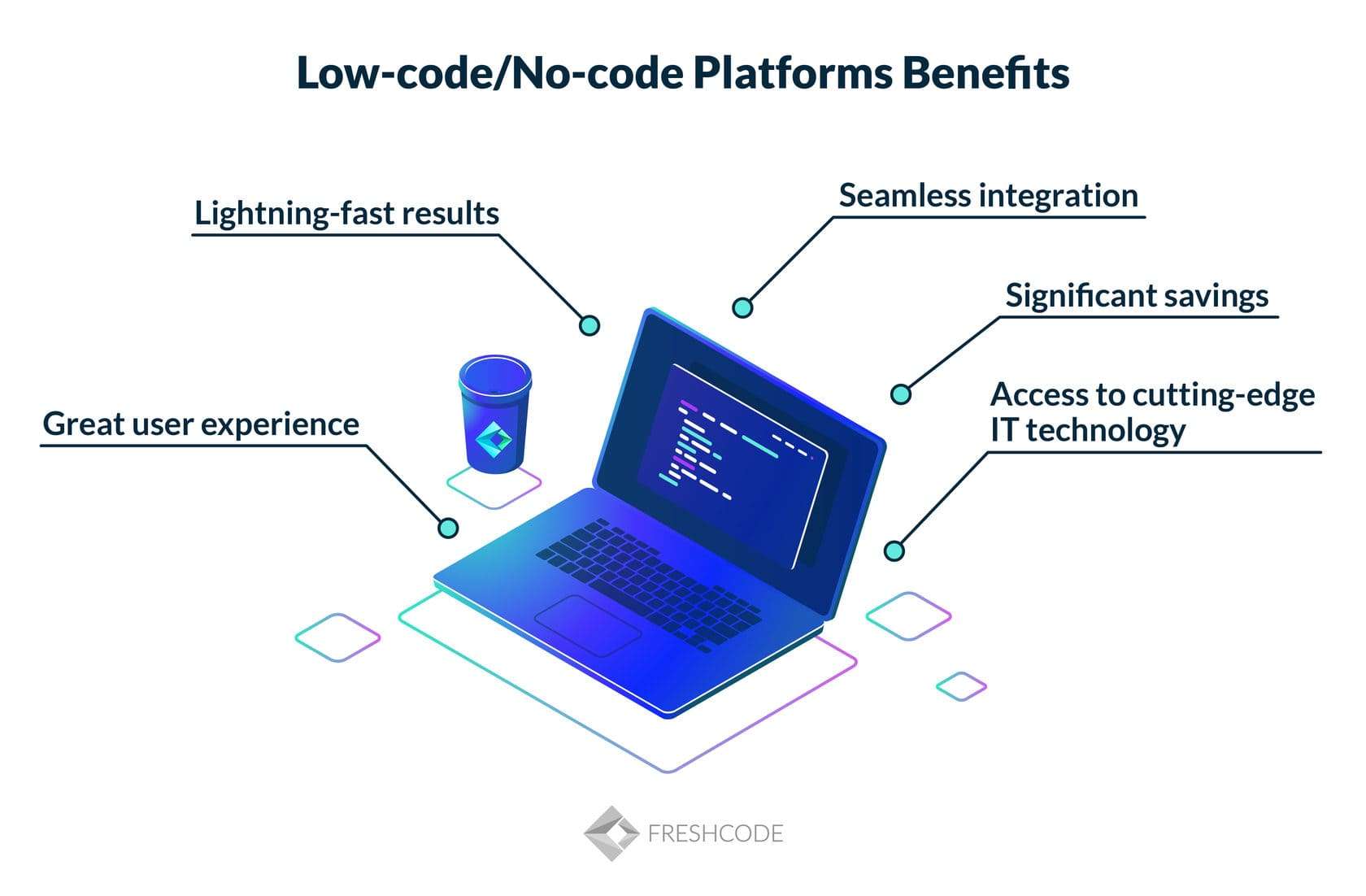Intelligent Automation
The use of artificial intelligence (AI) and automation technology to streamline and optimize various business processes is known as intelligent automation. It entails using advanced algorithms, machine learning, and robotics to complete jobs with minimal human participation, resulting in increased productivity and fewer errors. Businesses are making considerable use of current intelligent automation trends to generate and handle massive volumes of data, automate end-to-end procedures, and make jobs faster and more efficient. We’ve compiled a list of the top intelligent automation trends to watch for in 2023. Source
Source
Intelligent Automation Technologies
1. RPA | Robotic Process Automation
Imagine having robot helpers for computer work! That’s kind of like what RPA is. RPA helps computer programs do tasks just like humans do, but even faster and better. It’s becoming really popular in places like insurance, banking, finance, and healthcare because it makes things work smoother and faster. This is making jobs easier, saving time, and keeping everything safe. RPA is becoming a big deal in the world of smart technology, and it’s expected to keep growing in the next few years.2. Cognitive Automation
Cognitive automation blends artificial intelligence and robotic process automation to enable more advanced automation. It enables systems to learn from unstructured data, make context-based judgments, and adapt to changing contexts.3. Generative AI
Artificial intelligence (AI) algorithms and machine learning methodologies are the backbone of generative AI, and they use pre-existing data like text, music, and visuals to train themselves to create brand new, unique content. Generative AI can create software programs, process images, aid in medication research, and accelerate organizational growth and development.4. IA Improves Customer Experience
The pandemic made many companies speed up their move to using more technology and making the online experience better for customers. Now, people care a lot about how they feel when they buy things or use services. This is going to keep getting more important, and companies will need even more technology to meet what customers want. People will want things to be really easy and personalized, and that can only happen with the help of smart technology like AI and data analytics.5. Constant Testing Will Govern DevOps CI/CD Automation
Since DevOps enables ongoing development and delivery of high-quality software to customers, it is essential for virtually any business. Testing is critical for DevOps CI/CD, and IA technologies will be used to perform continuous automated program testing at each development step. Continuous automated testing essentially improves the quality of generated software and resolves all issues prior to its instant deployment.6. The Importance of Low-Code and No-Code Platforms Is Growing
Organizations can use low-code and no-code platforms to create unique automation solutions without considerable coding experience. These platforms let business users create apps, workflows, and procedures, which speeds up development and deployment. Source
Source
7. Process Intelligence
It is an extremely useful tool that is often used in commercial settings to examine diverse processes and develop customized process models for these operations. Essentially, it examines various business workflows and provides organizations with useful information. Companies can uncover areas of concern within their processes and significantly improve their operating models by leveraging the power of process intelligence.FAQ’s
As a result, just 49% of respondents expect their intelligent automation spending to grow in 2023, compared to 53% in 2022. The percentage of respondents who expect their RPA budgets to remain unchanged over the next year has remained unchanged at 40%.
Intelligent automation has the potential to save 10 million lives each year, according to our estimates. It can accomplish this through assisting in clinical trials, disease diagnosis, and the prevention of medical errors. It can also assist in minimizing fatalities from preventable causes in developing countries.
An additional 35% stated they wanted to implement intelligent automation, with 54% planning to invest in RPA. Though more people are adopting and realizing the benefits of RPA and intelligent automation, this does not imply that everyone’s budget is growing.
The Intelligent Automation platform includes a number of technologies that can help you improve process efficiency while also increasing staff productivity. Let’s take a look at what’s included in that.
- DocEdge is an intelligent document processing system.
- User Interface Automation
- Management of Business Processes
- Cloud AI Machine Learning Communications Mining
What to Take Home?
Keeping an eye on future trends in process automation will be critical for organizations to remain competitive and streamline their operations as we move forward. Companies will be expected to provide increasingly personalized solutions that combine various automation technologies to satisfy specific industry needs. Integrations with IoT (Internet of Things) and edge computing will also boost automation’s potential, allowing for real-time data-driven decisions.
Finally, the developments shaping intelligent automation in 2023 highlight technology’s transformational power in streamlining company operations. These trends, ranging from the broad deployment of RPA to the emergence of collaborative robots, are redefining how industries operate, deliver value, and engage with customers. Staying up to date with these latest IA trends will be critical for keeping a competitive edge in today’s dynamic landscape as organizations adopt automation. The development of new automation technology demonstrates human inventiveness and our potential to shape the future.
Intelligent automation is more than a technology; it is a strategic strategy that can transform the future of your firm.
When it comes to sales, automation is already creating waves and will only increase in importance.


